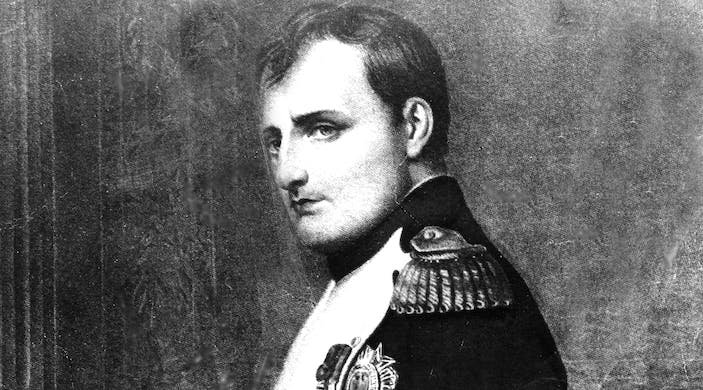Biographies: How Greatness Deals With Displacement
Ovid and Napoleon, like Dante, Pushkin, Trotsky, Einstein, and the Dalai Lama, thrived in exile even while experiencing the pain of displacement.

The Psychologies of Political Exile: From Ovid to the Dalai Lama
By Jay Martin
Limited Editions Press, 225 pages
Did you know that Napoleon attempted suicide at least twice? Ovid had suicidal feelings, writing that the “dread desire still to die, that the sufferings stop,” made survival “something to be ashamed of.”
Augustus banished Ovid because he regarded the poet as an “impediment” to his reformist program to correct the rising wave of adulterous vice in Rome. It took years for Ovid to recover himself and see in his exile an opportunity to create his work anew.
Napoleon, saturated in “The Sorrows of Werther,” seemed obsessed with the idea of suicide. The 17-year-old Bonaparte wrote an essay titled “Sur Le Suicide.” He carried a vial of poison in case a troop of Cossacks at the Maloyaroslavets caught up with him.
Yet Ovid and Napoleon, like Dante, Pushkin, Trotsky, Einstein, and the Dalai Lama, thrived in exile even while experiencing the pain of displacement.
Jay Martin, psychoanalyst, biographer, novelist, playwright, translator, and poet, has written a group biography linking together figures not usually included within a single book. That is the point, of course, as they all suffered, in his words, “depression, anxiety, confusion, identity diffusion, feelings of oppression, narcissistic striving, creative release,” but sometimes felt the “ecstasy of freedom in exile.”
Each chapter is written with elegance and insight. Mr. Martin employs no jargon, but he wields provocative concepts such as the “fictive personality.” Napoleon, in Mr. Martin’s telling, created himself out of fiction and history. He did not confuse himself with his reading and yet he did see Alexander and Caesar as “somehow existing in himself.”
Mr. Martin skillfully crosses biography with history: Napoleon thought “he would return to Paris victoriously, as Caesar had returned to Rome. … His model of return rapidly led to his mistake of returning from Elba too quickly, when another two or three months of delay would have ripened his plans and also given the French a yet more bitter taste of the old tyranny of the Bourbons, and their contempt for French citizens.”
Exile became a boon for the Dalai Lama: “Had he never left Chinese-occupied Tibet, he would have been the subject of a few paragraphs and a minor footnote in Asian history. In exile he became free—of Tibet, of outworn rituals and formalities, of China. Exile endowed him with the world.”
Dante rued his exile and his separation from his beloved Florence but found a new home in his imagination: “With fury aimed at you. / Quite soon they all / Shall have red brows, not you,” for, “you / Are by yourself a party, one that needs / No other membership.” As Mr. Martin puts it, the poet “found a home in his authorship.”
Trotsky did not embrace exile. He thought a revolution of the proletariat would return him to power. Yet exile gave him the time to write magnificent history.
Exile did not enhance Einstein’s scientific work. By the time he came to America he had made his contribution to physics, but he still managed to transform himself into a world figure.
Engagement with social issues saved Einstein, Mr. Martin argues. Yet exile took its toll.
When Czesław Miłosz consulted Einstein about defecting to the West, the scientist advised the poet to stay in Poland, Cynthia L. Haven reports in “Czesław Miłosz: A California Life.”
Pushkin’s exile resulted in a new psychology and a new style as he cast off the “shallow cultures of Moscow and Petersburg.” In the Caucasus, he read Byron and made friends who toughened him up in ways that led to the creation of his great work, “Evgenii Onegin.” That work, however, did not prevent him from reverting to some outstanding juvenile behavior.
In conversation with Mr. Martin, we discussed my view that his knowledge of nine languages brings to biography a sharper focus, using his own translations to form an integrated approach to the psychologies of political exile that was not the concern of earlier translators.
In his conclusion, Mr. Martin reflects on what has become a global problem with “mostly groups that are displaced in shared dispossession.” Millions struggle “much in the same way” as his seven subjects.
He plans to write a second book on the mass struggle, and ends with an exhortation: “Volume Two is ready for you to imagine it, and act upon it.”
Mr. Rollyson is the author of “The Life of William Faulkner” and “The Last Days of Sylvia Plath” and many other biographies. Podcast: A Life in Biography https://anchor.fm/carl-rollyson

